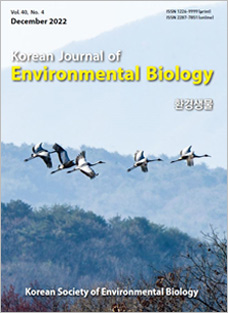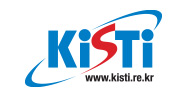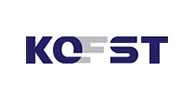Research Ethics Committee
The Korean Journal of Environmental Biology (KJEB) operates the Research Ethics Committee (REC) to ensure compliance with research ethics and handle complaints and appeals.
1. Role of the Research Ethics Committee
The REC deliberates and makes decisions on the following matters: (1) Establishment and operation of regulations related to research ethics and integrity, (2) Designation of departments for receiving and handling reports of misconduct, (3) Commencement of preliminary and formal investigations and approval of investigation outcomes, (4) Matters related to the protection of whistleblowers and measures for restoring the reputation of individuals under investigation, (5) Handling of verification results and follow-up actions, and (6) Any other matters determined by the chairperson.
2. Composition of the Research Ethics Committee
The REC is established and operated by KJEB to establish research ethics and ensure integrity. The REC consists of five members, with the Director of Research Ethics of KOSEB serving as the chairperson. Individuals involved in matters under investigation or in conflicts of interest cannot be included in the REC, and the term of office for members is two years, renewable.
3. Role of Research Ethics Committee members
The chairperson represents the REC and presides over its meetings. The vice-chairperson assists the chairperson and assumes their duties in the absence of the chairperson. The committee appoints one secretary to assist with the conduct of meetings and fact-finding investigations.
4. Meeting of Research Ethics Committee
The chairperson convenes meetings of the REC and presides over them. Decisions are made by a majority vote of the attending members, with the approval of at least two-thirds of the attending members. In cases where the chairperson deems the matter to be minor, written deliberation may suffice. Meetings are generally held in private, but relevant parties may be invited to attend and provide input when deemed necessary.
5. Reporting and Receipt of Misconduct Allegations
Any individual may report misconduct to the Editorial Board or the REC of KJEB through various means, such as verbal communication, written communication, telephone, or email, with the preference for reporting under real names. However, if anonymity is desired, the individual must submit the details and evidence of the misconduct, including the title of the paper, in writing or via email.
6. Duration and Method of Preliminary Investigation
The preliminary investigation must be completed within 12 days from the date of receipt of the report. During the preliminary investigation, the following aspects are reviewed: (1) Whether the reported content constitutes misconduct, (2) Whether the reported content is specific and clear enough to warrant a formal investigation, and whether there are benefits to conducting such an investigation, (3) Whether the report falls within the statute of limitations, i.e., if more than 5 years have elapsed since the alleged incident.
7. Reporting of Preliminary Investigation Results
The preliminary investigation results shall be communicated in writing to the President of the Society and the informant within 5 days of approval by the REC. The report on the preliminary investigation should include: (1) The reported content, (2) Allegations of misconduct under investigation and related research projects, (3) Decision on whether to proceed with a formal investigation and the rationale for the decision, (4) Any other relevant evidence.
8. Duration and Method of Formal Investigation
Based on the preliminary investigation results, the REC conducts a formal investigation. The formal investigation must commence within 7 days of approval of the preliminary investigation results by the President of the Society. The investigation, including the decision, must be completed within 60 days from the date of initiation, and if it's not feasible to complete the investigation within this period, the President of the Society may be informed with an explanation and a request for an extension. The final report should include the following: (1) Reported content, (2) Allegations of misconduct under investigation and related research projects, (3) Role of the accused in the relevant research paper and determination of the allegations of research misconduct, (4) Relevant evidence and witnesses, (5) Objections or arguments from the informant and the accused regarding the investigation results and the outcome, (6) Other investigation findings.
9. Attendance and Submission of Documents
The REC may require the attendance of informants, the accused, witnesses, and references for statements,and in such cases, the accused must comply. The REC may also request the submission of documents from the accused.
10. Protection of the Rights and Confidentiality of Informants and Accused
Under no circumstances should the identity of the informant be directly or indirectly disclosed, and the informant's name should not be included in the investigation report unless absolutely necessary for protection purposes. Care must be taken to ensure that the honor and rights of the accused are not violated until the verification of misconduct is completed, and efforts should be made to restore the honor of the accused if they are found not guilty of misconduct. All matters related to the investigation, such as reporting, investigation, deliberation, decision-making, and recommendations, must be kept confidential, and individuals directly or indirectly involved in the investigation and relevant officials must not disclose any information acquired during the investigation and performance of their duties. However, if there is a legitimate need for disclosure, some information may be disclosed following the decision of the REC.
11. Guarantee of the Right to Raise Objections and Present Arguments
REC must ensure that both the informant and the accused have equal rights and opportunities to express their opinions, raise objections, and present arguments. They should be informed of the relevant procedures in advance.
12. Application mutatis mutandis
Policies regarding research and publication ethics not specifically described in these regulations shall adhere to the International Standards for Editors and Authors(http://publicationethics.org/international-standards-editors-and-authors) for editors and authors. In cases where research misconduct not specifically described in these regulations occurs, post-investigation measures shall follow the COPE flowchart, and matters related to research integrity not covered in these regulations shall be governed by national laws and regulations concerning integrity.
13. Notification
The chairman of REC finalizes the investigation findings and results and notifies the informant and the accused in writing.
14. Determination
If consensus on the investigation findings and results cannot be reached, a decision is made by a majority vote of the attending members, with at least two-thirds in favor.
15. Confirmation of Misconduct
If 14 days pass after the notification of the investigation results without the accused contesting the misconduct, it is considered as admitted.
16. Appeal
If either the informant or the accused disagrees with the decision of the REC, they may lodge a written appeal with specific reasons to the REC within 14 days of receiving the decision.
17. Reconsideration
If an objection is raised against the decision of the REC, it can be reconsidered.
18. Measures and Disclosure of Results
If misconduct is detected during the review process of a submitted paper, the review of that paper is immediately halted. If a published paper is confirmed to be a case of misconduct, the following measures may be taken: (1) The paper may be retracted, with written notification to the author’s institution,(2) Announcement of the incident on the society's journal or website at least once, (3) Imposition of a four-year ban on submission for all authors of the paper.
19. Record Keeping
Records related to this investigation shall be kept by the REC and preserved for five years from the conclusion of the investigation.
Vol. 40 No. 4 (2022.12)

Frequency quarterly
Doi Prefix 10.11626/KJEB.
Year of Launching 1983
Publisher Korean Society of Environmental Biology




Online Submission
submission.koseb.org
KOSEB
Korean Society of Environmental Biology
Contact info
Any inquiries concerning Journal (all manuscripts,
reviews, and notes) should be addressed to the managing
editor of the Korean Society of Environmental Biology.
Yongeun Kim,
Korea University, Seoul 02841, Korea.
E-mail: kjeb@koseb.org
Tel: +82-2-3290-3496 / +82-10-9516-1611






